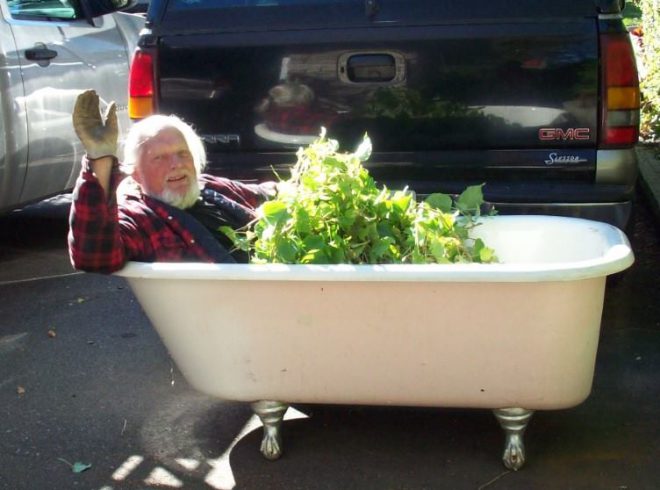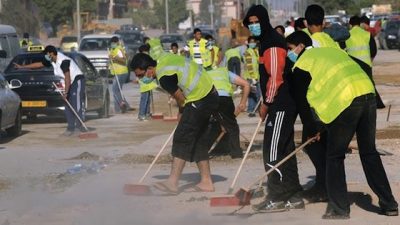We all know the saying: one’s mans trash is another man’s treasure. Embarrassing as it was in my younger years, my father was a collector and seller of other people’s trash and today makes a living from it. He calls it curbside shopping. It might be in the genes, because I too have a penchant for finding discarded treasures and good homes for my unwanted things. He also taught me how to make a chicken coop and raise chickens.
Besides all that good recyclable stuff like clothing and furniture, there is a whole spectrum of trash that one needs to account when focused on living an environmentally-friendly lifestyle.
Why is trash something important to reduce?
There are a number of reasons: costly and polluting packaging usually serves no purpose other than carrying your items from the store to the trunk of your car. Petrol costs for transporting excess waste adds up as does the world’s precious resources. Not to mention that some trash contains dangerous chemicals that eventually gets recycled in our ecosystem.
Taking a look inside your garbage, what’s there? If you live in a European or North American town, hopefully you will have a nearby glass, tin, plastic bottle, newspaper and cardboard recycling facility nearby.
In some countries, such facilities don’t yet exist, so making use of packaging in creative ways can help reduce landfill. Before you even have to find ways to reduce packaging, try eliminating it from your purchases. One way is to take your own plastic containers to bulk food and grocery stores and ask them to put your sliced cheeses, meats, olives and salads in your own reusable containers.
Plastic Bags and Other Packaging
Try and say no to the endless stream of plastic bags salespeople are trying to give to you. The average person uses 167 plastic bags a year and likely more than 99% of them end up in landfill where they will take centuries to break down, choking wildlife and polluting our surroundings along the way. The plastic bag is becoming such a hot topic in some countries such as Australia and Ireland – and recently even Israel.
“Every time we use a new plastic bag they go and get more petroleum from the Middle East and bring it over in tankers,” said Stephanie Barger, executive director of Earth Resource Foundation in California in a newspaper story. “We are extracting and destroying the Earth to use a plastic bag for 10 minutes.”
Speaking of plastic, today many environmentalists agree that people shouldn’t support the bottled water industry. Some cities in the US are even banning sale of bottled water in public buildings, like San Francisco Mayor Gavin Newsom. Instead, buy a Brita or a filter system for your water tap if you are worried about health issues and your local water supply.
An Organic Matter
Uncooked organic matter such as eggshells, vegetable peelings, and teabags should never be thrown in the trash. Either set up a composting bin (often available through your municipality) or suggest that a few buildings on your block develop one together in less trafficked areas of land. Just by keeping organic non-meat and non-dairy products out of the trash can reduce the weight of your garbage by about 50%.
It is possible to make a compost for meat and dairy, but this is more complicated because specific kinds of insect feeders should be introduced to keep nasty bacteria away. In such composts, women’s sanitary napkins and tampons can be also be broken down.
Bags of Leaves
Do you throw out bags of leaves, twigs and organic matter that land on your walkway and lawn? Truth is, it is not green to wrap this material and then ship it off to landfill. Organic matter that stems from the source it originated is important to keep in its place so that the cycle of life spinning in your back yard can keep its wheels turning. It will provide next year’s nutrients to your plants.
Unwanted Mail
Sometimes there is no way to get around it. But there are tips for reducing unwanted mail: First of all, avoid surveys that promise free goods. Such companies sell your address to promotional companies who will send you ads for stuff you probably don’t need anyway. Don’t give your address to strangers online, on the phone and when filling out contest entries in grocery stores. When in doubt use your email address (it’s much more environmentally friendly) and leave a note on your mailbox that unauthorized mail is not welcome.
Clothes
Old clothing, sheets and curtains should never be tossed in the trash. Based on my personal experience, there is always someone out there who will find your old and much loved T-shirt to be one of their greatest finds. In the most direct way, find a local Goodwill, Salvation Army or depot where you can drop off all your old clothes. Those items that are stained, can be kept for rags or stuffed into an old pillowcase and used for your pet’s mattress. Also, try to buy items that are of quality so that they last longer.
Furniture and knick-knacks
The old bowling ball. The organ. Your grandmother’s 50s style kitchen set. The electric fireplace that you inherited from your father’s golf buddy. While the easiest and obvious choice might be to toss everything into a big black bag and forget about it by throwing it to the curb, know that there are other ways of keeping your old trash alive.
Garage sales are one way. And if you notice that there are people collecting trash on a regular basis in your neighbourhood then try and get one of their numbers for pickup. Like my father, he is more than happy to stop buy and pick up a load of good junk, an old barbecue and even unwanted computers when someone calls.
If you have found no other outlet and must throw what you can’t compost and recycle to the trash, don’t do it on a rainy or snowy day. You never know who is looking for what treasures you no longer want.





don’t forget about the freecycle networks, too. There are very successful, well-established freecycle email groups (look in Yahoo groups) operating in Jerusalem, Tel Aviv and other cities in Israel…………………………………….